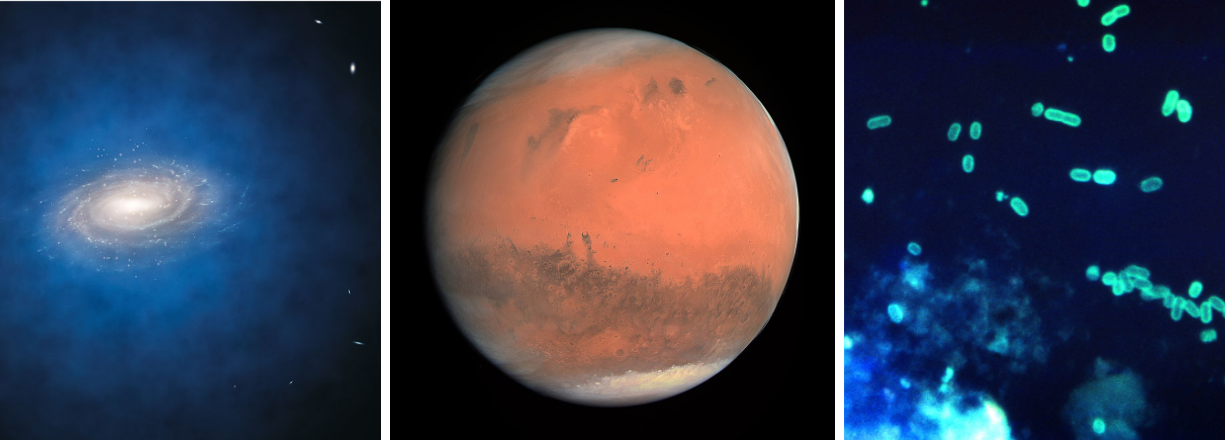Three PAS institutes won MSCA RISE 2020 grants
Space Research Center, Institute of Organic Chemistry and Nicolaus Copernicus Astronomical Center of the Polish Academy of Sciences have received the prestigious RISE (Research and Innovation Staff Exchange) grants under the Marie Skłodowska-Curie Actions (MSCA) program. Thanks to the MSCA-RISE funds three far-reaching projects will be implemented.

Source: http://www.eso.org/public/images/eso1217a/ 2. ESA & MPS for OSIRIS Team MPS/UPD/LAM/IAA/RSSD/INTA/UPM/DASP/IDA, CC BY-SA 3.0 IGO; 3. Charles Farmer, USCDCP, free domain
Three active institutes of the Polish Academy of Sciences are among 823 beneficiaries from 137 countries. This year’s total budget for financing the 74 winning projects is EUR 80 mln. The MSCA-RISE program promotes international and corss-sector collaboration through personnel mobility and knowledge sharing. It helps people develop their knowledge, skills and careers, while building links between organizations working in different sectors of the economy, including universities and research institutes.
FlyRadar project
The aim of the international FlyRadar project, the participant of which is the Space Research Center of the Polish Academy of Sciences, is to develop a drone-borne P-band radar to investigate the Martian subsurface to be included in either a lander or a manned mission. The radar will be able to detect subsurface features down to several meters, which makes it a powerful device for both natural resources exploration and scientific research. Before, the instrument can hit the skies, scientists will have to miniaturize it and test it under various field conditions. The FlyRadar project brings together scientists and industrial partners from four European countries: France, Poland, Hungary, and Italy.
Micro4Nano project
Visualization of the processes taking place in cells and tissues is crucial for deepening the understanding of the functioning of living organisms and the search for new medications. Of the many visualization techniques, fluorescence plays a huge role. It is determined by its sensitivity, dependence on small changes in the environment, the possibility of attaching fluorescent probes to bio-particles and the availability of many types of microscopes. The #Micro4Nano project, in which the Institute of Organic Chemistry of the Polish Academy of Sciences takes part, aims at developing new methods of three-dimensional visualization of large fragments of biological tissues. The project will use only twelve fluorescent probes discovered by the team of Prof. Daniela Gryko from the PAS Institute of Organic Chemistry. In addition to PAS scientists, researchers from the USA, Italy, Croatia, Spain, Finland and Israel participate in this project.
#PROBES project
We have known for a long time that everything that have been observed in the Universe so far is only a small part of a larger space-time that is still awaiting to be discovered. The Nicolaus Copernicus Astronomical Center of the Polish Academy of Sciences will be one of the 26 members of the consortium implementing the #PROBES project, which includes such prestigious scientific units as the European Organization for Nuclear Research (CERN) and the Massachusetts Institute of Technology (MIT). The project aims to improve our current knowledge of the most fundamental issues in modern astrophysics, which is "dark matter" and "dark energy". Under the PROBES project, leading research groups from Europe, USA, Japan and China will collaborate with companies to develop the most modern scientific methods and technological solutions to create very sensitive instruments for observing such rare phenomena as gravitational waves, dark matter or neutrinos. The Polish group of researchers will be led by Prof. Leszek Roszkowski, head of the Astrocent – Science and Technology Center for Particle Astrophysics.
Source of information: Polish Science Contact Agency PolSCA
